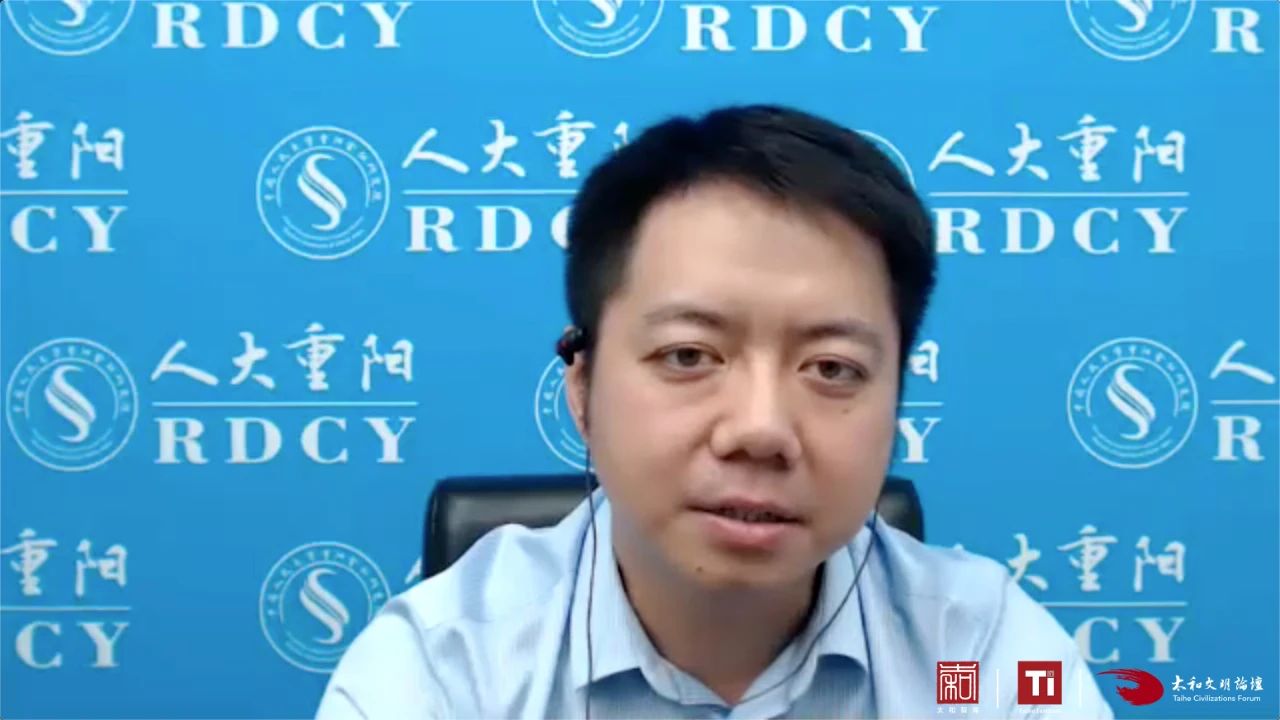Keynote Speech by Wang Wen at the International Relations Sub-session

I am both a beneficiary and a “victim” of China-U.S. relations. What makes me a beneficiary is that my personal growth has benefited from the development of China-U.S. relations. 16 years ago, I studied at Johns Hopkins University-Nanjing University Center for Chinese and American Studies,and went on to become an international journalist where I wrote hundreds of news reports about the U.S. and won a “China News Award” for one such report. Due to this experience and recognition I have made my way to the Renmin University of China.
But at the same time, I am also a victim of China-U.S. relations. In early 2019, as an active scholar of exchanges between the two countries, my 10-year valid visa to the U.S. was cancelled. In the same year, dozens of senior Chinese professors were said to have been denied visas to the U.S., and more than 200 Chinese scholars planning to visit the U.S. were said to have had their visas withheld, delayed, denied or cancelled. As a result of this action, I have been excluded from accessing the U.S. side of the relationship.
As we go forward, China and the U.S. must adapt to the new China and the new U.S. The United States is different from it used to be. Twenty years ago, the U.S. was more willing to place emphasis on “the whole world”. However, it emphasizes “the U.S. first” and “the U.S. as a priority” now. On the other hand, China is also different. In the past, China was introverted, but now it becomes more confident. Both China and the U.S. need to adapt to each other’s new selves. It is a process that will be difficult and replete with competition, risks, and challenges.
For now, there are three worst-case scenarios that both sides need to guard against. The first is military conflict between China and the U.S. Since July, the Chinese media have been speculating and assessing that Donald Trump might, in order to win the presidential election, take the initiative to attack China by a strike against an island in the South China Sea in the next two months or so. Such action would increase regional tension and reinforce Trump’s self-promoted “strong man” image, with the aim of winning over more supporters. This is a course of action that Donald Trump might refer to in order to win the election. This might be his “October Surprise”.
The second is the strong anti-Americanism that has emerged throughout China. Chinese society today is very diverse, with both nationalists and pro-U.S. groups. But the power of “liberals” who are so impressed with the U.S. and have been speaking for it are now in rapid decline due to the rhetoric of Donald Trump’s anti-China policies. Instead, more and more Chinese believe that the U.S.’ form of democracy is hypocritical and that the U.S. is a “bad country”, as the current U.S. policy toward China actually hurts the interests of ordinary Chinese people. There can be no good outcome for the U.S. by generating a strong anti-U.S. sentiment in a country of 1.4 billion people.
The third is that confrontation between China and the U.S. will lead to world disaster. As China and the U.S. failed to cooperate in the fight against the COVID-19 pandemic, the pandemic is still developing. If confrontation continues between China and the U.S., it will bring huge disaster and challenges to the entire world, and global conditions will worsen as countries will be caught in the middle, confronting the dilemma of choosing sides.
I have the following suggestions to maintain and develop China-U.S. relations. First, Chinese and U.S. governments, intellectuals, and think tanks all shoulder the responsibility to promote contacts and dialogue in various fields between the two countries. Second, the Chinese and U.S. media should talk more openly about cooperation to ease the current tense atmosphere. Third, in the process of mutually adapting to new realities, a fourth or even a fifth China-U.S. Joint Communique could be issued. At the very least these communiques should include a clear articulation of the basic bottom line for China-U.S. relations, that is, there can be no military conflict between China and the U.S. A war between the two countries would be a disaster for all mankind.
-

- The U.S-China Relations Can Be Restarted 13 October , 2020
-

- China and U.S. Enter ‘Protracted War’ 13 October , 2020
-

- The World has Ushered in a New Era of Multilateral Framework... 13 October , 2020
-

- 2020 Taihe Civilizations Forum Content Highlights 17 December , 2020
-
2020 Content Highlights
-

- Zheng Ruolin Senior Fellow of Taihe Institute; Senior Journalist of Wen Wei Post.
-

- Chu Yun-han Professor at the Department of Political Science at National Taiwan...
-

- Zou Ming Vice President of Phoenix New Media Ltd. ; Chief Editor of Phoenix New Media...
